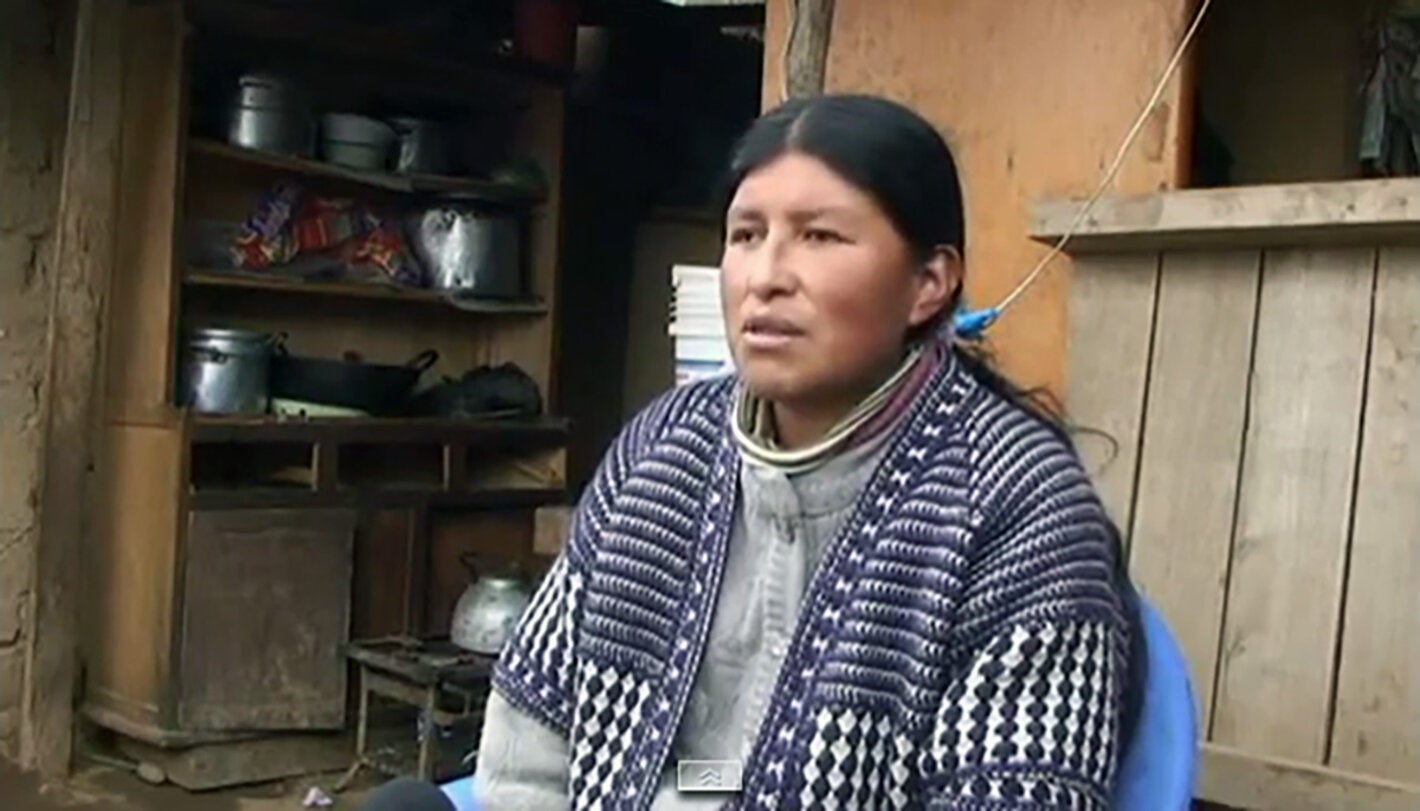
La Paz, Bolivia, 27 May 2015 (PAHO/WHO) — Miriam had not realized she was pregnant with her sixth child when she began to bleed. "I'm bleeding. Let's go to the hospital before it's too late," she told her husband. On the way, she went into shock and lost consciousness. But she remembers part of the trip, being on a stretcher, and "a thing they attached to me here," she says, touching her abdomen. Then, "don't fall asleep, get up, you are bleeding. You have to stay alive for your children's sake," the doctor told her, and that she did. At the Bolivian-Dutch Hospital in El Alto, in the department of La Paz, Miriam got the care she needed, and both she and her baby are now healthy.
Miriam is the first mother whose life was saved by staff at the Bolivian-Dutch Hospital after they received training in November 2104 in a workshop on obstetric hemorrhage taught by experts from the Pan American Health Organization/World Health Organization (PAHO/WHO) in Guatemala. The pressure she felt on her abdomen was an antishock garment that health workers used to control her bleeding.
El Alto, population 800,000, is one of a number of municipalities in Bolivia where obstetric hemorrhage is the leading cause of maternal death. That's why it was chosen as one of the implementation sites for PAHO/WHO's "Zero maternal deaths from hemorrhage" project, which aims to prevent women from dying as a result of obstetric hemorrhage.
Dr. Giovanni Escalante, a PAHO/WHO expert on health systems, says the project promotes a series of actions to prevent and stop obstetric hemorrhage. The goals are to improve the "resolution capacity" of health workers, to ensure safe blood for transfusions, and to make sure health services have the tools and equipment they need to prevent deaths from postpartum hemorrhage.
The PAHO/WHO initiative, which has been adopted by Bolivia's Ministry of Health, also includes an analysis of the capacities of the Bolivian-Dutch Hospital to develop a roadmap for strengthening the facility. Additionally, the initiative seeks to improve surveillance of maternal mortality, severe maternal illness, and neonatal and perinatal infant deaths, while increasing the availability of safe blood for transfusions.
"This project is making us stronger," said Hugo Borda, director of the Bolivian-Dutch Hospital, which will eventually provide training for other Bolivian health professionals in the management of obstetric hemorrhage, helping to save more lives of women like Miriam.
Following the success of the project, PAHO/WHO's country office in Bolivia is buying more antishock garments to distribute in the entire health network of El Alto.



